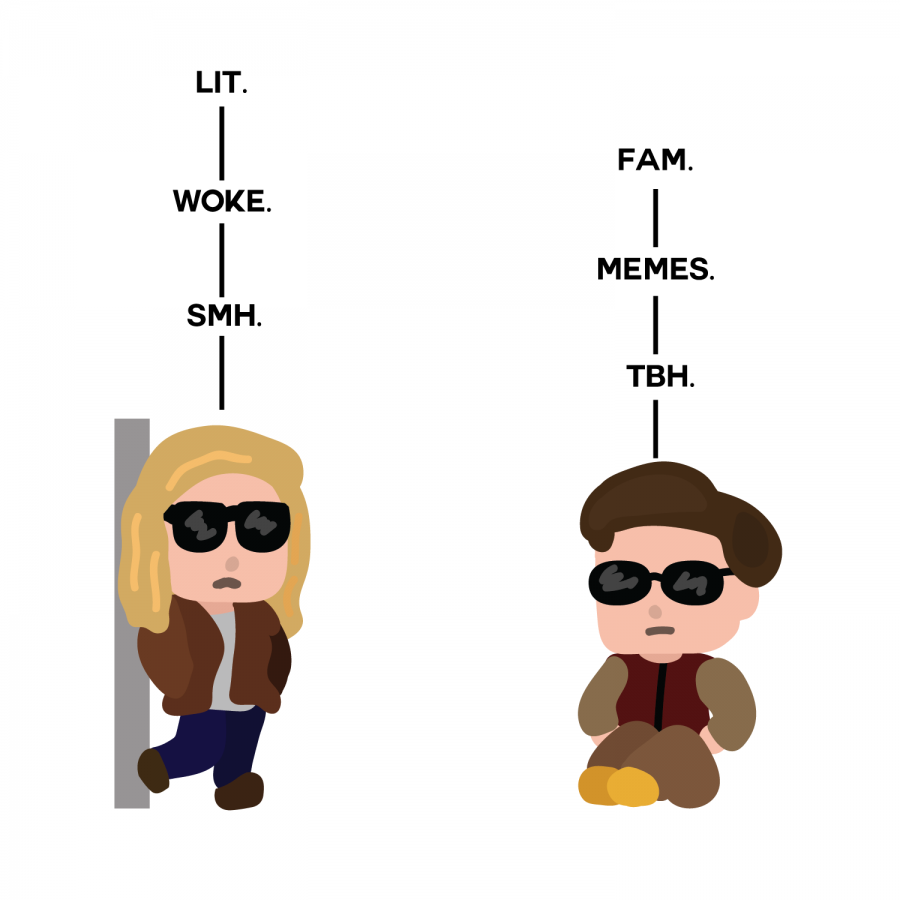Millennial memes widen generational divide
Dec 8, 2016
 I don’t know when “YOLO” stopped being cool, or what has currently replaced it. I know that today, I use words, phrases and abbreviations like “on fleek,” “dank memes” and “SJW” without hesitation.
I don’t know when “YOLO” stopped being cool, or what has currently replaced it. I know that today, I use words, phrases and abbreviations like “on fleek,” “dank memes” and “SJW” without hesitation.
Sometime in the midst of Thanksgiving break, my parents said that they were baffled by the string of words and phrases that I had so seamlessly dropped into conversation.
I think there are two options for what confused my parents the most. The first is that it was more the words and phrases themselves that caught them by surprise. The second is that I’ve incorporated them so easily into my language — probably as a result of living on this campus.
The words that millennials have blended into our everyday vernacular are not words our parents or grandparents are even remotely familiar with. Our language represents our political leanings, and our political leanings define and divide us. The socially progressive movement has made the words “intersectionality,” “oppression” and “privilege” commonplace in discussions of social issues.
In 1937, Fred Astaire brought to light different regional pronunciations with the catchy song, “Let’s Call the Whole Thing Off.” The song’s chorus joked about differences in pronunciations: “You say po-tay-toe, I say po-tah-toe … You say to-may-toe, I say to-mah-toe.”
Get The Daily Illini in your inbox!
The song would not be nearly as catchy if someone sang “you say Alt-right, I say White Supremacist.”
These words all have meaning and value, but the need for the rest of society to follow the guidelines of what is “PC” has gotten out of hand. My parents are not the only ones confused by the words I have come to see as routine. Before dialogue can even begin, we have to define every word we intend to use; arguing ensues, and the intended conversation never takes place.
The words “trigger warning,” “microaggression” and “safe space” surface continually in statements put out to student bodies from various administrations. Progress will not be made if we insist on solely analyzing the world around us through the lens of our own word choices.
People with opposing viewpoints should still be able to have sophisticated and productive dialogue on topics of importance. Today, it seems like people are speaking entirely different languages.
Instead of actually addressing the serious issues in our country and the world, we are spending our time deliberating over our words so they don’t offend anyone or rationalizing our vocabulary and how it plays into our narrative.
You can be as “woke” as you want, but if you dismiss those who aren’t on board with your perspective, you are not an educated progressive thinker. You’re only adding to the verbal divide that’s pushing us all farther apart.
In a world where every typed character counts and every hashtag is instrumental in conveying your message, it is important that the words we choose to use are words that will resonate with and educate those around us.
Hayley is a sophomore in ACES.






